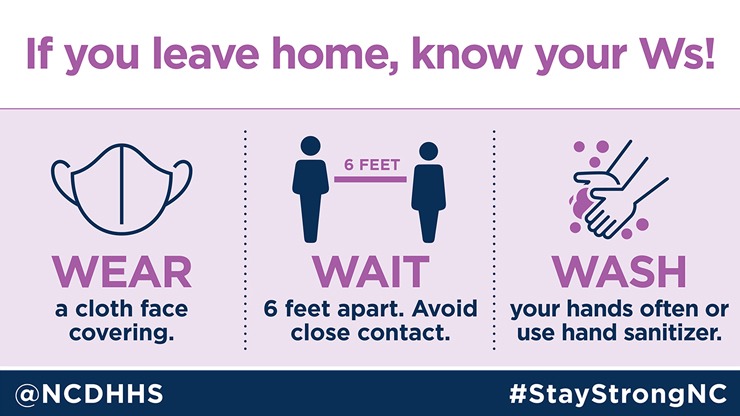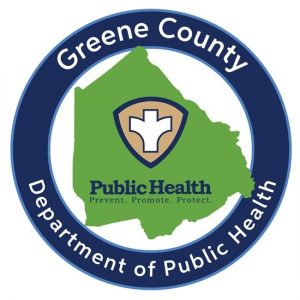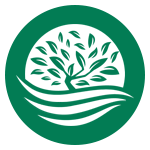
Health Department News

FOR IMMEDIATE RELEASE
July 14, 2020
Contact: Ford Porter
Phone: 919-814-2100
Email: govpress@nc.gov
North Carolina K-12 Public Schools to Require Key Safety Measures to Allow In-person Instruction
Districts may choose to conduct school entirely by remote learning
North Carolina will continue to pause in Safer At Home Phase 2 for three more weeks
RALEIGH: Governor Roy Cooper and North Carolina Department of Health and Human Services (NC DHHS) Secretary Dr. Mandy Cohen were joined today by education and health leaders to announce health and safety plans for K-12 public schools for the new school year. Schools will open for in-person instruction under an updated Plan B that requires face coverings for all K-12 students, fewer children in the classroom, measures to ensure social distancing for everyone in the building, and other safety protocols.
“The most important opening is that of our classroom doors. Our schools provide more than academics; they are vital to our children’s’ health, safety and emotional development,” said Governor Cooper. “This is a difficult time for families with hard choices on every side. I am committed to working together to ensure our students and educators are as safe as possible and that children have opportunities to learn in the way that is best for them and their families.”
The Strong Schools NC Public Health Toolkit outlines the updated requirements for Plan B. Districts may choose to operate under Plan C, which calls for remote learning only, and health leaders recommend schools allow families to opt in to all-remote learning. Modifications have been made to Plan B since it was released in June to make it more protective of public health.
“After looking at the current scientific evidence and weighing the risks and benefits, we have decided to move forward with today’s balanced, flexible approach which allows for in-person instruction as long as key safety requirements are in place in addition to remote learning options.” said NCDHHS Secretary Mandy Cohen, MD. “We will continue to follow the science and data and update recommendations as needed. We ask every North Carolinian to do their part to slow the spread of COVID-19 and follow the three W’s: Wear a face covering when in public, Wait 6 feet apart, Wash your hands.”
Governor Cooper also announced that the state will provide at least five reusable face coverings for every student, teacher and school staff member in public schools. In June, the state provided packs of personal protective equipment to schools that included a two-month supply of thermometers, surgical masks, face shields and gowns for school nurses and delegated staff who provide health care to students.
“Educators and stakeholders across our state have worked tirelessly to reopen our school buildings safely for our students, teachers and staff. Today, we take another critical step towards that goal. We also know families need to choose the option that is best for their children, so all school districts will provide remote learning options,” said Eric Davis, Chairman of the State Board of Education.
“In-person education is important for children, and it happens in the context of a community. This plan strikes the right balance between health and safety and the benefits of having children learn in the classroom. We must all continue with proven measures to reduce COVID-19 transmission like wearing a face covering, keeping distance between people, and frequent hand and surface cleanings so we can move closer to safely re-opening public schools,” said Dr. Theresa Flynn, M.D., M.P.H., FAAP, a practicing pediatrician who serves on the Board of Directors for the North Carolina Pediatric Society and joined today’s announcement.
Under Plan B, schools are required to follow key safety measures that include:
Require face coverings for all teachers and students K-12
Limit the total number of students, staff and visitors within a school building to the extent necessary to ensure 6 feet distance can be maintained when students/staff will be stationary
Conduct symptom screening, including temperature checks
Establish a process and dedicated space for people who are ill to isolate and have transportation plans for ill students
Clean and disinfect high-touch surfaces in the school and transportation vehicles regularly
Require frequent hand washing throughout the school day and provide hand sanitizer at entrances and in every classroom
Discontinue activities that bring together large groups
Limit nonessential visitors and activities involving external groups
Discontinue use of self-service food or beverage distribution
In addition, schools are strongly recommended to follow additional safety measures that include:
Designate hallways and entrance/exit doors as one-way
Keep students and teachers in small groups that stay together as much as possible
Have meals delivered to the classroom or have students bring food back to the classroom if social distancing is not possible in the cafeteria
Discontinue activities that bring together large groups
Place physical barriers such as plexiglass at reception desks and similar areas
More details can be found in the Strong Schools NC Public Health Toolkit. Read the Screening Reference Guide for schools and the Infection Control and PPE Guidance.
In addition to the announcement about school plans, Governor Cooper shared that North Carolina will remain paused in Safer At Home Phase 2 after the current Executive Order expires on Friday, July 17.
“As we continue to see rising case numbers and hospitalizations, we will stay in Safer At Home Phase 2 for three more weeks,” said Governor Cooper. “Our re-opening priority is the school building doors, and in order for that to happen we have to work to stabilize our virus trends.”
School Groups on Today’s Public School Announcement
“While all school re-entry plans have their challenges during this pandemic, our superintendents, principals, and other school leaders will continue to prioritize student and staff safety in reopening schools under the cautious parameters outlined today by the Governor,” said North Carolina Association of School Administrators Executive Director Katherine Joyce. “We look forward to continuing work with the Governor, the General Assembly, and other state leaders to ensure our schools have the support needed to get student learning back on track in the safest manner possible in each local district.”
“I recognize Governor Cooper faced a very difficult decision. The good news is that local school boards can now begin to officially put their school reopening plans in motion,” said Brenda Stephens, President of the North Carolina School Board Association. “While the current situation may not be ideal for all, I’m confident North Carolina’s educators will continue to provide students with the best education possible.
FOR IMMEDIATE RELEASEJune 24, 2020Contact: Ford PorterPhone: 919-814-2100Email: govpress@nc.gov North Carolina Pauses in Safer At Home Phase 2, Adds Statewide Requirement for Face CoveringsAs trends move in the wrong direction, state will not yet move into Phase 3 |
RALEIGH: Governor Roy Cooper and North Carolina Department of Health and Human Services Secretary Dr. Mandy Cohen today announced that North Carolina will remain in Safer at Home Phase 2 for three more weeks. Cooper also announced that face coverings must be worn when people are in public places as officials seek to stabilize concerning trends of increasing viral spread. Cooper and Cohen were joined by Dennis Taylor, President of the North Carolina Nurses Association and Eugene A. Woods, President and CEO of Atrium Health. “North Carolina is relying on the data and the science to lift restrictions responsibly, and right now our increasing numbers show we need to hit the pause button while we work to stabilize our trends,” said Governor Cooper. “We need to all work together so we can protect our families and neighbors, restore our economy, and get people back to work and our children back to school.” “I know North Carolinians are strong, resilient and care deeply about our communities. We pride ourselves on helping our neighbors. The best way we can do that now is by taking the simple action of wearing a face covering that covers your nose and mouth. If we each do our part, we can get back to the people and places we love,” said Dr. Mandy Cohen, NCDHHS Secretary. Growing evidence shows that cloth face coverings, when worn consistently, can decrease the spread of COVID-19, especially among people who are not yet showing symptoms of the virus. Until now, face coverings had been strongly recommended. Under today’s executive order, people must wear face coverings when in public places where physical distancing is not possible. In addition, certain businesses must have employees and customers wear face coverings, including retail businesses, restaurants, personal care and grooming; employees of child care centers and camps; state government agencies under the Governor’s Cabinet; workers and riders of transportation; and workers in construction/trades, manufacturing, agriculture, meat processing and healthcare and long-term care settings. “Wearing a face covering is an easy thing to do that can make a huge impact for all of us. A major spike in cases would be catastrophic to the system, and without your cooperation, nurses and our fellow healthcare providers will have a harder time caring for sick patients for weeks and months to come,” said Dennis Taylor, a nurse, and President of the North Carolina Nurses Association. “As the leader of the state’s largest health system, I am pro-health and also 100 percent pro-business. In fact, the two are inextricably connected and I’m very proud of the way business leaders and health experts are working together to keep our economy strong,” said Eugene A. Woods, President and CEO of Atrium Health. “Medical science says to reduce the spread of COVID-19 masking works, and my sincere hope is that all the people of North Carolina can join forces to make wearing a mask not something we feel we have to do – but something that we want to do to keep each other, our neighbors, our children and our loved ones healthy and safe” Based on the metrics laid out in April by Governor Cooper and Secretary Cohen, North Carolina is evaluating a combination of the data from the following categories that shows the indicators moving in the wrong direction, causing officials to implement today’s pause in Phase 2. Trajectory in COVID-Like Illness (CLI) Surveillance Over 14 Days
Trajectory of Lab-Confirmed Cases Over 14 Days
Trajectory in Percent of Tests Returning Positive Over 14 Days
Trajectory in Hospitalizations Over 14 Days
In addition to these metrics, the state continues building capacity to be able to adequately respond to an increase in virus spread. These areas include: Laboratory Testing
Tracing Capability
Personal Protective Equipment
Businesses can download templates for signs on face coverings here [click.icptrack.com]. Downloadable social media graphics [click.icptrack.com] are also available for use. Read Executive Order No. 147 [click.icptrack.com] that implements today’s announcement. Read Frequently Asked Questions [click.icptrack.com] about today’s executive Order and mandatory face coverings. Read NCDHHS guidance on face coverings [click.icptrack.com]. View the slide presentation [click.icptrack.com] from today’s briefing. |
Are you interested in serving on the Board of Health?
The Greene County Board of Health is currently seeking one individual to serve on the board. We are recruiting for the following vacancy: Public Member. You must be a Greene County resident and attend 75% of the meetings. Board of Health members are appointed to three-year terms and may serve a maximum of three consecutive three-year terms. The Greene County Board of Health meets the 2nd Tuesday of every other month (January, March, May, July, September, and November) at 7 p.m. If you’re interested in applying, please visit https://www.greenecountync.gov/human-resources for a Board Appointment Form. Applications will be accepted through Tuesday, July 21, 2020 at 5 p.m.
Count On Me NC
𝗔𝘀 𝗡𝗼𝗿𝘁𝗵 𝗖𝗮𝗿𝗼𝗹𝗶𝗻𝗮’𝘀 𝗿𝗲𝘀𝘁𝗮𝘂𝗿𝗮𝗻𝘁𝘀, 𝗵𝗼𝘁𝗲𝗹𝘀, 𝗮𝘁𝘁𝗿𝗮𝗰𝘁𝗶𝗼𝗻𝘀 𝗮𝗻𝗱 𝗯𝘂𝘀𝗶𝗻𝗲𝘀𝘀𝗲𝘀 𝗿𝗲𝗼𝗽𝗲𝗻 𝗮𝗳𝘁𝗲𝗿 𝘁𝗵𝗲 𝗖𝗢𝗩𝗜𝗗-𝟭𝟵 𝘀𝘁𝗮𝘆-𝗮𝘁-𝗵𝗼𝗺𝗲 𝗼𝗿𝗱𝗲𝗿, 𝗖𝗼𝘂𝗻𝘁 𝗢𝗻 𝗠𝗲 𝗡𝗖 𝗶𝘀 𝗮 𝗺𝘂𝘁𝘂𝗮𝗹 𝗽𝗹𝗲𝗱𝗴𝗲 𝗮𝗻𝗱 𝗽𝘂𝗯𝗹𝗶𝗰 𝗵𝗲𝗮𝗹𝘁𝗵 𝗶𝗻𝗶𝘁𝗶𝗮𝘁𝗶𝘃𝗲 𝘁𝗵𝗮𝘁 𝗲𝗺𝗽𝗼𝘄𝗲𝗿𝘀 𝗴𝘂𝗲𝘀𝘁𝘀 𝗮𝗻𝗱 𝗯𝘂𝘀𝗶𝗻𝗲𝘀𝘀𝗲𝘀 𝘁𝗼 𝗵𝗲𝗹𝗽 𝗸𝗲𝗲𝗽 𝗲𝘃𝗲𝗿𝘆𝗼𝗻𝗲 𝘀𝗮𝗳𝗲 𝗮𝗻𝗱 𝗽𝗿𝗼𝘁𝗲𝗰𝘁𝗲𝗱.
Go check out the website https://countonmenc.org/
- make a pledge as a customer/community member
- complete provided online training as a business, and receive a certificate of completion to show your community!
Safer At Home Phase 2
On Friday at 5 pm, North Carolina will move to Safer At Home Phase 2. After two weeks in Phase 1, the state’s overall key indicators remain stable but the continued increases in daily case counts signal a need to take a more modest step forward in Phase 2 than originally envisioned.
In making the announcement to lift COVID-19 restrictions, Governor Cooper said, “North Carolina is using the data to guide our decisions about when to lift COVID-19 restrictions, and overall our key indicators remain stable. Safer At Home Phase 2 is another careful step forward, and we have to continue taking this virus seriously to prevent a dangerous spike in infections.”
“From the beginning, North Carolinians have joined together to confront this crisis. We need to rely upon one another to practice the three Ws [covid19.ncdhhs.gov] as we begin leaving our homes more. When we wear a face covering, wait six feet apart, and wash our hands often, we are showing we care for our loved ones and neighbors,” said Dr. Mandy Cohen.
NC DHHS also unveiled an updated COVID-19 Dashboard [covid19.ncdhhs.gov]. The interactive dashboard provides an overview on the metrics and capacities that the state is following to inform decisions to responsibly ease measures that slow the spread of the virus.
Phase 2 Resources
Interim Guidance for:
More than 800,000 Children Impacted by the COVID-19 Pandemic to Receive Additional Help Buying Food
FOR IMMEDIATE RELEASE
May 13, 2020
Contact: news@dhhs.nc.gov
(919) 855-4840
RALEIGH — Starting today, families impacted by school closings due to COVID-19 are beginning to receive additional food benefits as part of the new Pandemic Electronic Benefit Transfer (P-EBT) program [ncdhhs.us4.list-manage.com] announced by the North Carolina Department of Health and Human Services and the North Carolina Department of Public Instruction.
The program provides a food benefit on an EBT card to North Carolina families whose children have access to free and reduced lunch at school. Families will receive about $370 in P-EBT benefits per child, provided over two installments. Families can use the P-EBT benefit to purchase food items at EBT authorized retailers, including most major grocery stores.
“With school buildings closed, we need to make sure that children who get most of their meals at school have enough to eat,” said NCDHHS Secretary Mandy Cohen, M.D. “This program provides families with extra help buying groceries and putting food on the table.”
Families will not need to apply for the P-EBT program. Yesterday, most P-EBT eligible families already receiving Food and Nutrition Services (FNS) benefits received additional funds on their existing EBT card. Some FNS families will instead receive the benefit on a new EBT card. P-EBT eligible families not already enrolled in FNS will be mailed a new EBT card in mid- to late May. Families who receive a new EBT card will receive a letter from NCDHHS in the mail explaining how to activate and use their card.
The new P-EBT program is in addition to other services families may be participating in. As announced previously, all families that receive Food and Nutrition Services (FNS) have received the maximum amount allowed for March and April 2020 for their household size and will receive the maximum amount for May as well.
P-EBT benefits are entirely federally funded. North Carolina was the fourth state to receive federal approval to provide P-EBT benefits. More information about the P-EBT program can be found at www.ncdhhs.gov/PEBT [ncdhhs.us4.list-manage.com].
North Carolina is moving to Phase 1
On May 5th, Governor Cooper modified North Carolina’s Stay At Home Executive Order, transitioning the state to Phase 1 of slowly easing COVID-19 restrictions. Executive Order 138 goes into on Friday, May 8 at 5 pm.
Highlights of Phase 1 include:
Any retail business may open at 50 percent capacity. Businesses will be required to practice social distancing, perform frequent cleanings, provide hand sanitizer when available, screen workers for symptoms and more.
People may leave their homes for commercial activity at any business that is open.
Certain businesses remain closed, including bars, personal care businesses, entertainment venues, and gyms. Restaurants may only continue to serve customers for drive-through, take-out and delivery.
Teleworking is still encouraged for businesses that can practice it.
Cloth face coverings are recommended when you leave the house and may be near other people who are not family or household members.
The North Carolina Department of Health and Human Services (DHHS) created several materials [ncdhhs.gov] to help businesses navigate Phase 1, including:
NCDHHS Checklist for Business Owners
Interim Guidance for Owners, Staff, and Patrons of Businesses
Symptom Screening Checklist
Templates to Meet Required Signage
DHHS also previewed a new campaign, Know Your Ws! While North Carolinians should still stay home, if they go out, they should know their Ws: Wear. Wait. Wash.
- Wear a face covering,
- Wait 6 feet apart from other people.
- Wash your hands often and
A Know Your Ws flyer is available in English and Spanish. More materials will be coming.

Greene County Health Department
227 Kingold Blvd, Suite B
Snow Hill, NC 28580
Phone: 252-747-8183
Fax: 252-747-4040
Find us on Facebook
Hours of Operation
Monday – Friday, 8am – 5pm
Staff
Greene County
229 Kingold Blvd • Snow Hill, NC 28580
Phone: 252-747-3446 • Monday – Friday, 8:00 am – 5:00 pm

